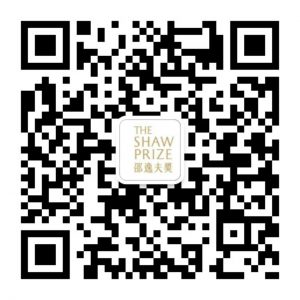for the discovery of fast radio bursts (FRBs).
The Shaw Prize in Astronomy 2023 is awarded in equal shares to Matthew Bailes, Director of the Australian Research Council (ARC) Centre of Excellence for Gravitational Wave Discovery, Duncan Lorimer, Professor and Interim Chair of Physics and Astronomy and Associate Dean for Research at Eberly College of Arts and Sciences at West Virginia University, USA and Maura McLaughlin, Eberly Family Distinguished Professor at the Department of Physics and Astronomy and Director of the Center for Gravitational Waves and Cosmology at West Virginia University, USA for the discovery of fast radio bursts (FRBs).
FRBs are among the most extreme and mysterious phenomena in astronomy: they are intense bursts of radio emission lasting only a few thousandths of a second that contain as much energy as the Sun emits over several days. The sources of the bursts are smaller than the Earth but are as far away as distant galaxies. In a seminal research paper written in 2007, Bailes, Lorimer, McLaughlin (with collaborators Narkevic and Crawford) found the first FRB; deduced many of the properties of its source, in particular its extreme distance, small size, and enormous energy; estimated the cosmic rate of production of FRBs; and highlighted their potential as cosmological probes.
Pulsars are among the most remarkable and exotic objects in the heavens: rapidly spinning neutron stars with a mass similar to the Sun’s, diameters of only a few tens of kilometers and magnetic fields a million million times stronger than the field we experience at the surface of the Earth. Pulsars emit beams of radio waves from their magnetic poles, which sweep across the Earth as the pulsars spin; these periodic pulses can be detected by Earth-based telescopes. On August 24 2001, during a search for pulsars in nearby galaxies, a telescope at the Parkes Observatory in Australia recorded a brief but unusually strong burst of radio emission. This event lay undetected in the archives of that search for more than half a decade, until it was found by David Narkevic, a student working with Duncan Lorimer and Maura McLaughlin at West Virginia University on a search for single pulses from pulsars with strongly variable radio emission. The arrival time of the burst was dispersed, that is, it changed with frequency, a characteristic of astrophysical signals such as those from pulsars that have propagated through the plasma of ionized gas that fills much of our Milky Way and other galaxies. However, the dependence of arrival time on frequency was far larger than for any known pulsar. Lorimer, McLaughlin, Bailes and their collaborators recognized that this dependence implied that the mysterious source – now known as the “Lorimer burst” – lay far outside our own Milky Way, roughly 100,000 times further than the typical pulsar and so far away that the burst was emitted over a billion years ago. They also showed that despite this enormous distance and the correspondingly huge energy requirements, the object emitting the burst had to be very small – the finite speed of light and the short duration of the signal implied that the burst must have come from a region smaller than the Earth.
Matthew Bailes was born in 1963 in Alice Springs, Australia and is currently Director of the Australian Research Council (ARC) Centre of Excellence for Gravitational Wave Discovery. He received his Bachelor’s degree in 1984 from the University of Adelaide, Australia and obtained a PhD in 1990 from the Australian National University. He founded the Centre for Astrophysics and Supercomputing at Swinburne University of Technology in 1998 and served as its Director for the first 12 years. He is a Fellow of the Australian Academy of Science.
Duncan Lorimer was born in 1969 in Darlington, UK and is currently Professor and Interim Chair of Physics and Astronomy and Associate Dean for Research at Eberly College of Arts and Sciences at West Virginia University, USA. He received his Bachelor’s degree in 1990 from the University of Wales in Cardiff, UK and obtained a PhD in 1994 from the University of Manchester, UK. He joined the University of Manchester as Lecturer (1994–1995). He was a Postdoctoral Fellow at the Max Planck Institute for Radio Astronomy, Germany (1995–1998) and Cornell University, USA (1998–2001) respectively. He had also held a position of Royal Society Research Fellow at the University of Manchester (2001–2006). He has been appointed Assistant Professor (2006–2010), Associate Professor (2010–2014) and Professor (2014–) at West Virginia University. He is a Fellow of the Royal Astronomical Society, UK and the American Physical Society.
Maura McLaughlin was born in 1972 in Philadelphia, Pennsylvania, USA and is currently Eberly Family Distinguished Professor of Physics and Astronomy and Director of the Center for Gravitational Waves and Cosmology at West Virginia University, USA. She received her Bachelor’s degree in 1994 from Pennsylvania State University, USA and obtained a PhD in 2001 from Cornell University, USA. She was an NSF Math and Physical Sciences Distinguished Research Fellow (2001–2003) and Research Associate of Jodrell Bank Observatory at the University of Manchester, UK (2003–2006). She then worked at West Virginia University, where she was successively Assistant Professor (2006–2011), Associate Professor (2011–2014), Professor (2014–2015) and Eberly Family Distinguished Professor (2015–). She is a Fellow of the American Physical Society.
